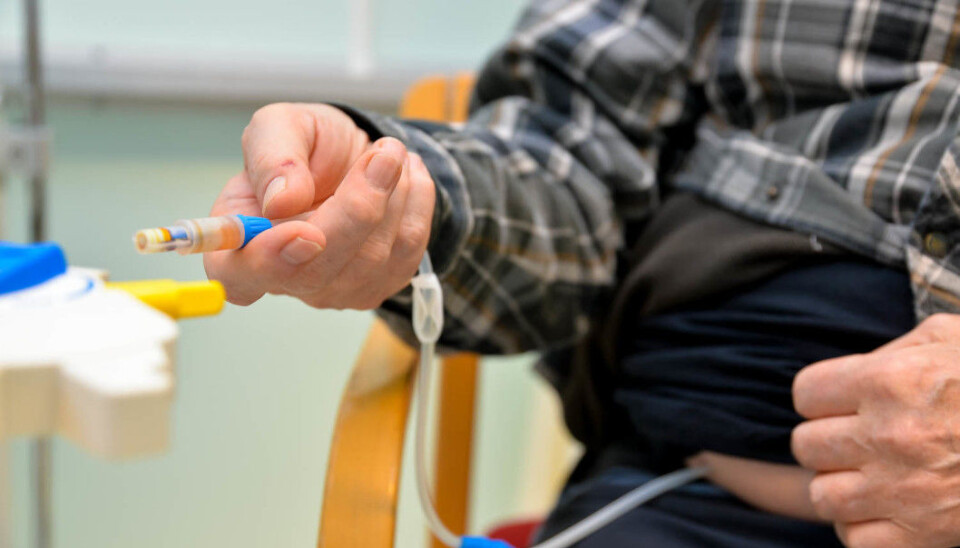
Kidney failure deaths on the rise
More and more elderly people are seeing a sharp reduction in kidney function, while other people live well into their old age with healthy kidneys. Tromsø researchers are looking for the reasons behind this dichotomy — and are getting closer to figuring it out.
It used to be that cardiovascular disease and cancer were the diseases people feared most in old age.
Now, advances in medicine and changes in people’s lifestyles have reduced the risk that people will die of these diseases.
But as we live ever longer, other diseases threaten to limit the number of healthy years we can enjoy as we grow old. Chronic kidney disease is one of them.
More dialysis in the elderly
The mortality rate of chronic kidney disease in Western countries has increased by as much as 40 per cent since 1990.

At the same time, the need for dialysis treatment and kidney transplantation has increased sharply among the oldest.
Bjørn Odvar Eriksen and Toralf Melsom work at the University Hospital of North Norway, where they are running the world's only study that uses accurate measurements of kidney function in the general population and that has been following the same individuals over many years.
Unfortunately, not many people realize that they have reduced kidney function before they get sick, Eriksen says.
“This is a somewhat silent condition that does not cause that many symptoms until kidney function is very low,” he said.
Kidney function can be measured by a person’s primary care physician, but the researchers think that most doctors are not aware of the need to keep tabs on kidney function.
The two researchers believe as Western populations age, kidney failure will become a major public health problem that currently isn’t getting the attention it deserves.
A natural part of ageing
The kidney's most important task is to cleanse the blood. However, as we age, the body’s ability to filter out waste products declines.
Chronic kidney disease is thus a natural part of ageing, the researchers say. Kidney function begins to deteriorate as soon as we are in our forties, but the pace of deterioration varies greatly among individuals.
This individual variation is one of the mysteries the researchers are trying to understand.
Some of us still have good kidney function when we get older. Others experience a sharp reduction.
One of the big questions the researchers are trying to answer is whether the kidneys age at the same rate as the rest of the body.
Does the biological clock tick more quickly in some people than others? And if so, why?
Long-term population study
The researchers are aided in their pursuit of these answers by a long-term population study called the Tromsø Study, which is one of the world's largest health-related population studies.
The researchers measured renal function in study participants in 2007, when they were between 50 and 62 years old. They then followed up with the participants in 2013.
Now, the researchers are starting a new round of testing their subjects.
“When we repeat these measurements, we will have very good information on how kidney function has declined. Then we can study risk factors more closely,” says Melsom.
Diabetes, high blood pressure pose a risk
It’s already known that diabetes poses an important risk for chronic kidney disease. High blood pressure also plays a role.
But there is still a lot of left to know, which means that researchers can’t say exactly what can be done to prevent chronic kidney disease.
Their results so far have shown that increased levels of fat in the blood, rigid blood vessels, a high resting heart rate and a low degree of inflammation results in a more rapid decrease in renal function.
“Currently, we believe it is important to prevent obesity and high blood pressure. Smoking is probably not good for kidney function either,” the researchers say.
Recently, in collaboration with Dutch and American researchers, the Tromsø team identified a substance in the urine, called a biomarker, that can help predict who will experience the fastest drop in kidney function.
Willing study participants
These findings are due, in large part, to the willingness of people in Tromsø to participate in the Tromsø Study, the researchers say.
Study participants spend half a day undertaking this particular test.
First, the researchers inject a contrast agent into the study participant’s vein. Then participants have to wait three to four hours for the researchers to see how much of the drug remains in the body once the kidneys have done their job.
“We have a participation rate of about 80 per cent. There is no other population study that has managed to reach this level of involvement,” Melsom said.
----------





